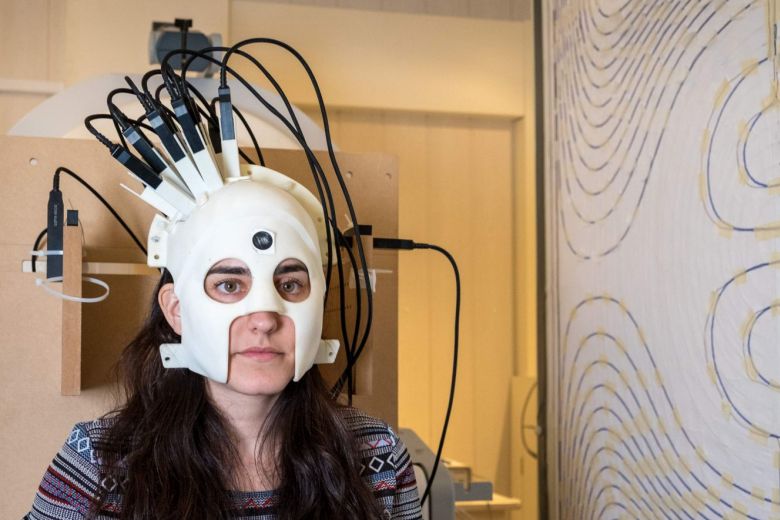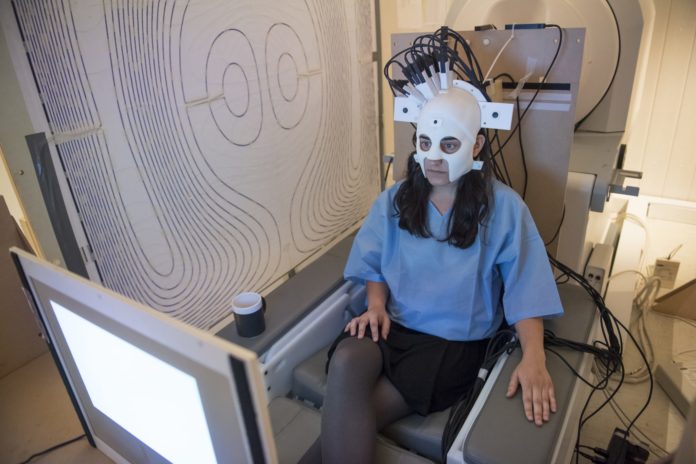The new portable scanner is also suitable for children
A new portable brain scanner could change the way diseases such as epilepsy are treated. The scanner developed by researchers including those from the University of Nottingham in the UK can be worn like a helmet, allowing patients to move naturally while being scanned.

The new, light-weight, magnetoencephalography (MEG) system measures brain activity while people make natural movements, including nodding, stretching, drinking tea and even playing ping pong.It is more sensitive than currently available systems, researchers said. While the portable variant will be a boon for paediatricians with young and restless patients, for epileptics it will help in diagnosis because very often the changes in the brain happen only at the time of a seizure. So while the seizure occurs and people around the patient can see behavioural changes, a scan later when he is taken to the neurologist would not reveal anything amiss.
Our scanner can be worn on the head like a helmet, meaning people can undertake tasks whilst moving freely
That could change with this system which patients can keep on so that there is constant monitoring of brain activity and when the electrical circuit goes haywire for a few moments as happens in epilepsy that can be immediately detected. It would also help improve treatment for patients with neurodegenerative disorders like Parkinson’s.
Designing a new brain scanner (MEG). Credit: Wellcome Trust. YouTube
“Our scanner can be worn on the head like a helmet, meaning people can undertake tasks whilst moving freely. Importantly, we will now be able to study brain function in many people who, up until now, have been extremely difficult to scan – including young children and patients with movement disorders ” said Gareth Barnes from Wellcome Trust Centre for Human Neuroimaging at University College London (UCL) .
The technology takes advantage of new ‘quantum’ sensors that can be mounted in a 3D-printed prototype helmet.
As the new sensors are very light in weight and can work at room temperature, they can be placed directly onto the scalp surface. Positioning the sensors much closer to the brain increases the amount of signal that they can pick up.
Following success of their prototype system, the researchers are now working towards new styles of helmet, which will have the appearance of a bicycle helmet, that will be suitable for babies and children as well as adults. The researchers predict this new type of scanner will provide a four-fold increase in sensitivity in adults, potentially increasing to 15 or 20-fold with infants.


